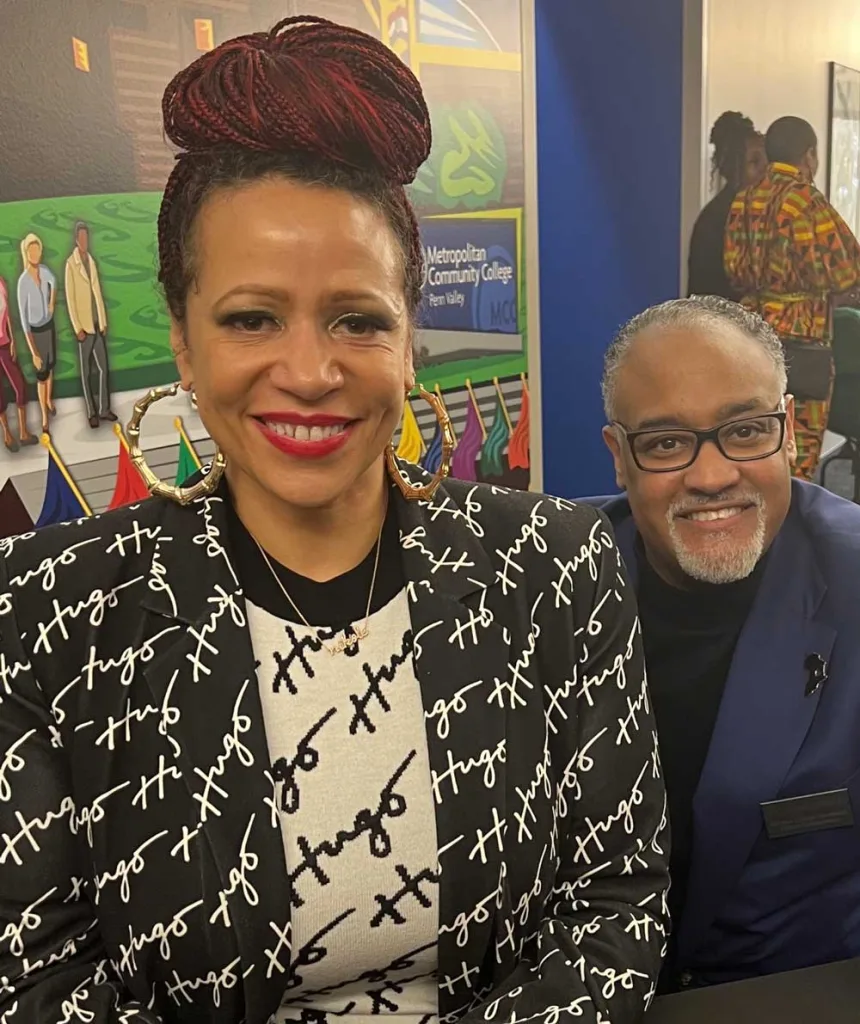Republished with permission from Kansas Reflector, by Mark McCormick
You won’t find a more questioned (or, it seems, despised) truth teller in America today than Nikole Hannah-Jones. That’s clear from the many ways critics have targeted her groundbreaking work of history, and of memory.
Critics of the Pulitzer Prize and McArthur Genius Grant recipient claim she hates America. That she’s race-obsessed. That her renowned 1619 Project for The New York Times Magazine, marking the 400th year since the first enslaved African arrived in America, lacked academic rigor.
This despite the project’s opening and closing essays detailing the patriotic reverence in which her father raised her in Iowa. This despite the fact it was the American government, not her, using race to organize society. This, despite the fact academics wrote 70% of the book. Shawn Leigh Alexander, chair of the African and African-American Studies department at the University of Kansas, served as a peer reviewer for a portion of the book.
Truth telling about American history isn’t her real crime, though.
Hannah-Jones’ real crime is that she revealed the heartbreaking truth that our systems and society don’t intend to end inequality. In fact, they are designed to sustain inequality. She discussed these topics during a recent visit to the Kansas City metro for the 16th annual Urban Summit.
Her point that America has a stubborn and storied history of resisting racial progress isn’t new. She’s just one of the most audacious (her word) and defiant and effective voices.

Columnist Mark McCormick (right) poses for a photo with author and journalist Nikole Hannah-Jones. (Mark McCormick)
For example, a beleaguered and seemingly disillusioned Martin Luther King Jr. wrote the following in his last book, “Where Do We Go From Here: Chaos or Community”: “Most whites in America … proceed from a premise that equality is a loose expression for improvement. White America is not even psychologically organized to close the gap—essentially it seeks only to make it less painful and less obvious but, in most respects, to retain it.”
Doubt it?
Hannah-Jones pointed out that the median income for Black men today is equal to the white male median income in 1936.
She said the racial wealth gap remains the same today as it was the day after an assassin killed King.
White high school graduates earn more than college-educated Black people.
“It’s a perfectly rigged system,” she said, one maintained by manufactured inertia, the embrace of glacial progress, and illusions of inclusion.
Yes, King said, “justice delayed is justice denied,” and much of America said, “Great idea!”
Much of white America is “progress obsessed,” Hannah-Jones said. The response to questions about inequality’s stubbornness is, “We are making progress.” African Americans are expected to wait indefinitely for freedoms other groups in our society enjoy.
The phrase “we are making progress” drains any urgency and allows for mere pantomime of social justice concern.
“If we’re making progress, then we don’t actually have to do anything,” she said.
Stymie, stall, hedge. That’s the game. Racial progress, then retrenchment or, worse, white backlash.
It’s partially maintained, she said, by language obscuring the truth. For example, we call the forced labor camps where Black people experienced rape, torture and death “plantations,” which conjure bucolic images of white-pillared homes and white women in hoop skirts. Americans have gotten married at these sites.
“Would anyone choose to get married at a concentration camp?” she asked.
Whenever actual progress occurred in the United States, detractors attacked.
The nation used race as an organizing principle for 350 years. Black people could not own land, sign contracts, or establish wills, or take other lawful steps to build family and generational wealth. Where Black people lived and worked, and whom they could marry, were strictly controlled or prohibited by custom, policy or law.
When slavery ended, the government opposed any aid or compensation for Black people. They had spent 250 years of working for free, starving, with no education and no money.
“Why would you treat (the newly liberated) special?” Hannah-Jones quoted the sentiment at the time. “That wouldn’t be fair. What about the poor white people?”
Sound familiar? This same language was used to disparage efforts to address inequality more than 100 years later through affirmative action.
There was always whiplash. After the strides of Reconstruction, the Black population experienced another 150 years of racial apartheid and lynching. The advances of the Civil Rights Movement of the 1950s and 1960s were followed, just 12 years after King’s death, by President Ronald Reagan’s revolution. We began to see the reversal of key racial and social justice wins.
Black Lives Matter protests gave way to an “all lives matter” counter campaign, along with attacks on critical race theory, and seminal works like the 1619 Project.
African Americans have proven loyalty, Hannah-Jones said, to a nation that often has despised them despite monumental contributions.
She recounted how Black soldiers watched Nazi prisoners of war eat in cafeterias they could not enter. Here in Kansas at Fort Riley, Hollywood icon Lena Horne once stormed off stage when she saw Black soldiers sitting behind Nazi prisoners.
Despite that and more, Black people fought in every theater of war, contributed in every aspect of American life, and continue to press the nation to live up to its soaring ideals.
“We are the perfectors of democracy,” Hannah-Jones said.
She’s telling the truth, again. We should thank her, not attack her. We stood as she entered the auditorium. We stood as she left. We stood in line for her to sign her books and to pose for photos. She could do no wrong. Some of us who had attended the event left with a sense for how badly many of our fellow citizens need the advantages racial inequality provides. We learned why they cling to it and why they defend it so passionately, even violently.
Through her, we’re learning the truth: Equality is only a threat to folks who want their share—and yours.
Mark McCormick is the former executive director of The Kansas African American Museum, a member of the Kansas African American Affairs Commission and deputy executive director at the ACLU of Kansas. Through its opinion section, Kansas Reflector works to amplify the voices of people who are affected by public policies or excluded from public debate. Find information, including how to submit your own commentary, here.

Kansas Reflector
Kansas Reflector is a nonprofit news operation providing in-depth reporting, diverse opinions and daily coverage of state government and politics. This public service is free to readers and other news outlets.
